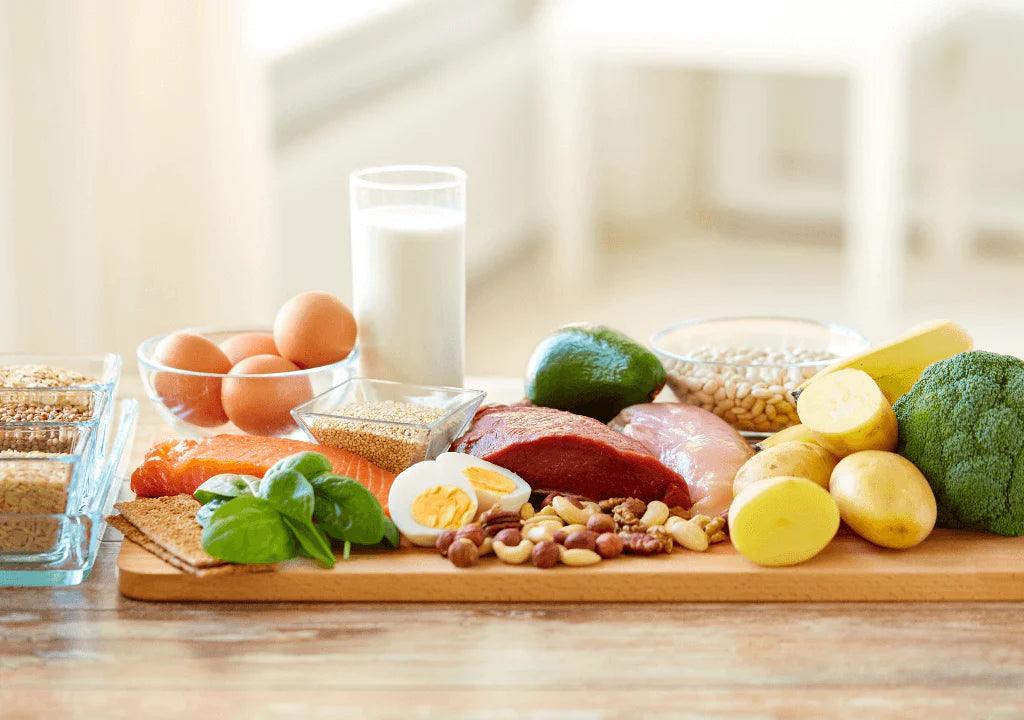Our bodies benefit from protein in numerous ways. But, do you know the role of protein in the body? Well, protein is responsible for most of the work done by the cells, and they perform various functions.
Up for a tiny science lesson?
Proteins are made up of amino acids that merge together to form chains. There are over 20 amino acids that form thousands of different types of proteins to aid the body in performing its functions. They are integral to the structure, function and regulation of the body’s tissues and organs. The various kinds of proteins include: antibodies, enzymes and messengers. A few basic functions that they perform are reaction catalysis, oxygen transportation and defending the body against infections.
Are you looking to incorporate more protein-rich foods into your diet, but confused about where to begin? Well, let’s take a look at not just the sources, but also the benefits of protein.
Sources of Protein
There are various sources of protein available to the mass consumer, however not all food sources are created equal, and there are 2 major sources: animal based and plant based.
You may be wondering what the difference between the two is. Their amino acid composition is the primary distinction between animal and plant proteins. All nine of the required amino acids are present in the majority of animal proteins, which are complete proteins. Eating low-fat sources of animal protein such as poultry and fish can lower the risk of type 2 diabetes, heart-disease and help with weight control. Animal-based protein is the most widely used source by athletes in foods to strengthen muscles.
Since at least one amino acid is absent, plant proteins are regarded as incomplete proteins. However, eating a variety of plant proteins at once can provide the impression of eating full proteins. The benefits of protein aren’t just limited to animal based. Plant-based protein provides plenty of nutrients, fibre and antioxidants that can improve your overall health. Here are some high protein foods that you may include in your diet to improve your well-being and build stronger muscles.

1. Soya
A protein rich food source for vegetarians, Soya can reduce increased cholesterol and the risk of heart disease. Not to mention, it is a very versatile food and can be eaten in various forms, tofu, tempeh, miso and more. Soy is also packed with fibre, vitamins and minerals, such as calcium, iron, magnesium and zinc.
2. Nuts & Seeds
If you're on the move, a convenient protein option is nuts and seeds. Hemp seeds, pumpkin seeds, peanuts, almonds, pistachios, sunflower seeds, flax seeds, chia seeds, cashews and walnuts are just some of the many that are rich in protein. Packed with fibre and protein, they can be eaten in salads, cereal, granola and many more ways. They are rich in sodium and potassium, which can replenish the electrolytes lost during workouts.
3. Poultry
Lean white meats, such as chicken and turkey are ideal sources of protein. And they are also the most commonly consumed source. They are also a great source of vitamin B6, niacin and omega-3 levels. Eggs are also an incredible source of protein, they contain various vitamins, minerals, iron and other essential nutrients. Not to mention they are low in cost, calories and carbohydrates.
4. Seafood
Fish are mostly low-fact, which pack heart-healthy omega-3 fatty acids, selenium, vitamin B12 which can lower inflammation and joint stiffness. They are also easily digestible and are integral to human development. While most fish are high protein foods, the most protein rich foods are: cod, prawns, sardines, shrimp, crab and salmon.
5. Protein Bars
Protein bars can provide much needed energy and can be consumed on the go, and they are often available in a variety of flavours. Just like the Whey91 protein bar, which is available in a delicious choco-fudge flavour with no added sugar or preservatives. It contains ‘lactoferrin’, a super-protein that promotes bone and skin health while helping you fight infections.
You can feel fuller and have a faster metabolism by eating high protein foods, but don't overlook the other dietary groups. These were only a few of the benefits of protein, and while it is imperative to meet your daily protein goals, remember to follow a balanced diet. A combination of fats, carbohydrates, fats and proteins is ideal. You can also check out our Whey91 protein bars here if you're looking for a savoury and healthy protein supplement.









